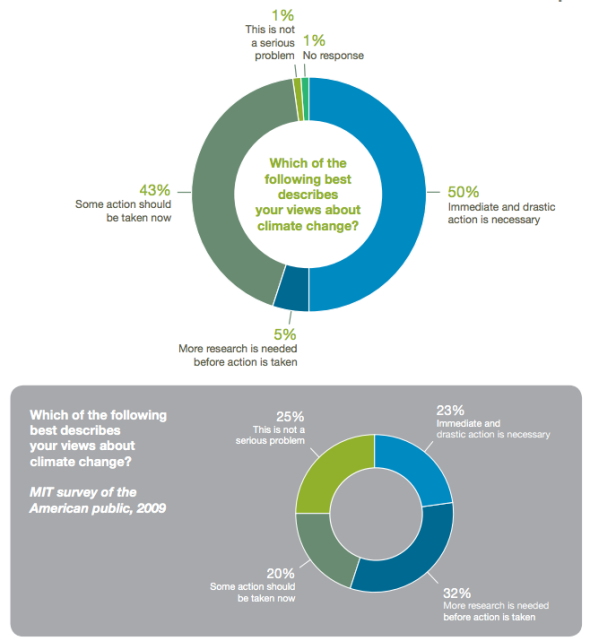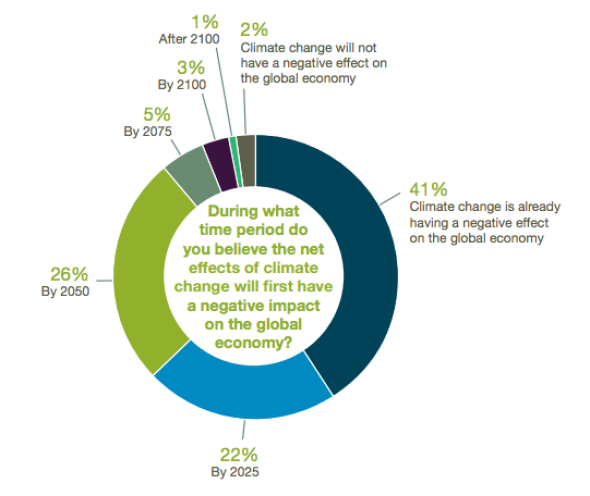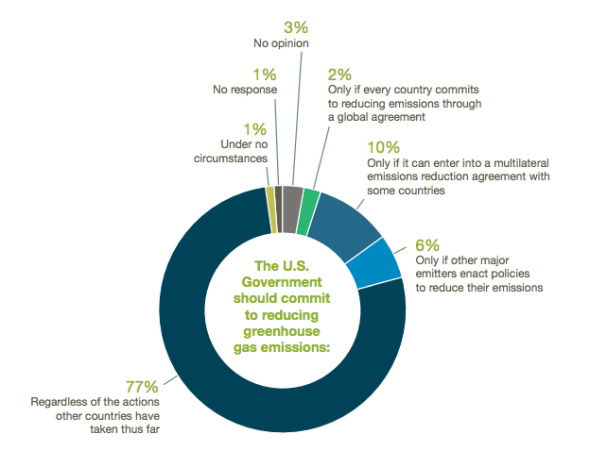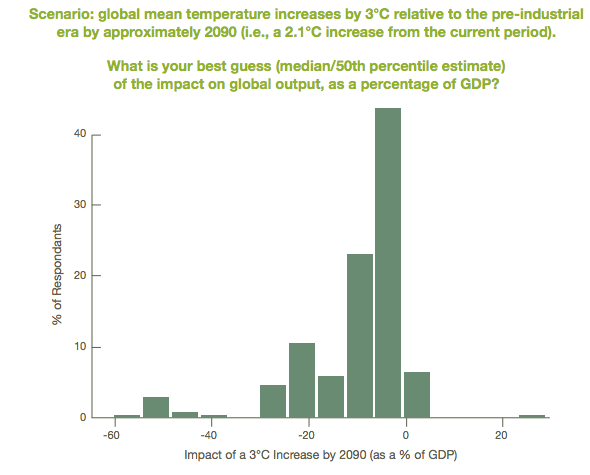With just two or three days remaining of official negotiations, the end game has arrived in the Paris climate talks. Round-the-clock negotiations are set to begin on Wednesday night, and there’s still a lot to be decided. What’s not up for negotiation is the eventual impact humanity may feel if governments continue on their current path.
Nearly every country has pledged to do something, but those pledges, when added up, aren’t nearly enough to limit global warming to the incredibly difficult 1.5 degrees Celsius goal that’s quickly gained consensus at the Paris talks. As a result, much of the diplomatic energy in recent days has been focused on still contentious issues like how to make sure future pledges are stronger, and how to ensure that highly vulnerable countries will have enough financial and technical support to adapt to inevitable changes in the oceans, forests, and atmosphere.
A trio of new reports released this week show that whatever happens in Paris, families and countries at the front lines of climate change will likely have their work cut out for them—and together they provide even greater urgency to the negotiations in Paris.
In the first report, a group of climate scientists and economists warns that the impacts of climate change could come more quickly and more harshly than predicted, which eventually will remove some incentives to cut emissions. That’s because, once damages from effects like rising sea level reach a “saturation” point—a low-lying country like the Maldives going underwater, for example—vulnerable countries will no longer have reason to argue for restrictions on greenhouse gases because they’ll have nothing left to lose. “We have a relatively small window of opportunity in terms of economic incentives underlying the climate science,” said Juan Moreno-Cruz, an economist at Georgia Tech and a co-author of the report, in a press release. “Once we pass a certain threshold, we won’t be able to go back because we will lose the incentives to do so.”
The second study used a combined climate and economic model to examine the effect climate-related disasters will have on a country’s level of economic inequality and overall vulnerability. Again, more bad news: “Even while the average income is growing inexorably, climate change would be exacerbating inequality and hindering poverty reduction,” lead author Francis Dennig, an economist at Yale-NUS College in Singapore, told the Washington Post. That means every additional ton of carbon dioxide currently emitted is more costly than previously thought, Dennig’s study asserts.
In the third and likely most consequential report, a broad survey of hundreds of economists shows much broader expert agreement on bold climate change action based on economic grounds than previously thought. In a 41-page consensus compiled by the Institute for Policy Integrity at New York University, those economists raise fresh concern about the policy path the world is currently on track for. The report was assembled after the authors attempted to contact every economist who has written on climate change since 1994.
Taking into account country-level pledges made during the runup to Paris (no new pledges have been offered at the Paris conference itself), the world is on pace for warming of between 2.7 and 3.6 degrees Celsius this century—not much different than the business-as-usual scenario the economists examined.
That world, which we’re currently on pace for, could be economically catastrophic, the report warns. Most notably, the group of economists is much more convinced than the general American public that immediate and bold action on climate change is necessary—and essential—to secure continued economic growth.

Institute for Policy Integrity

Institute for Policy Integrity

Institute for Policy Integrity

Institute for Policy Integrity
Trillions of dollars are on the line in the Paris negotiations as the world debates encouraging a shift of government and business funds from subsidizing fossil fuels toward subsidizing renewable energy. Though rich countries have pledged $100 billion of climate aid per year by 2020, a coalition of major developing economies this week said that, so far, the money that’s actually being allocated is vastly smaller.
Results like these provide a strong rebuttal to recent claims by Republican presidential candidates that taking action on climate change will negatively impact the American economy. In fact, it’s becoming even more likely that the American economy may not be viable in a world wrecked by climate change.
